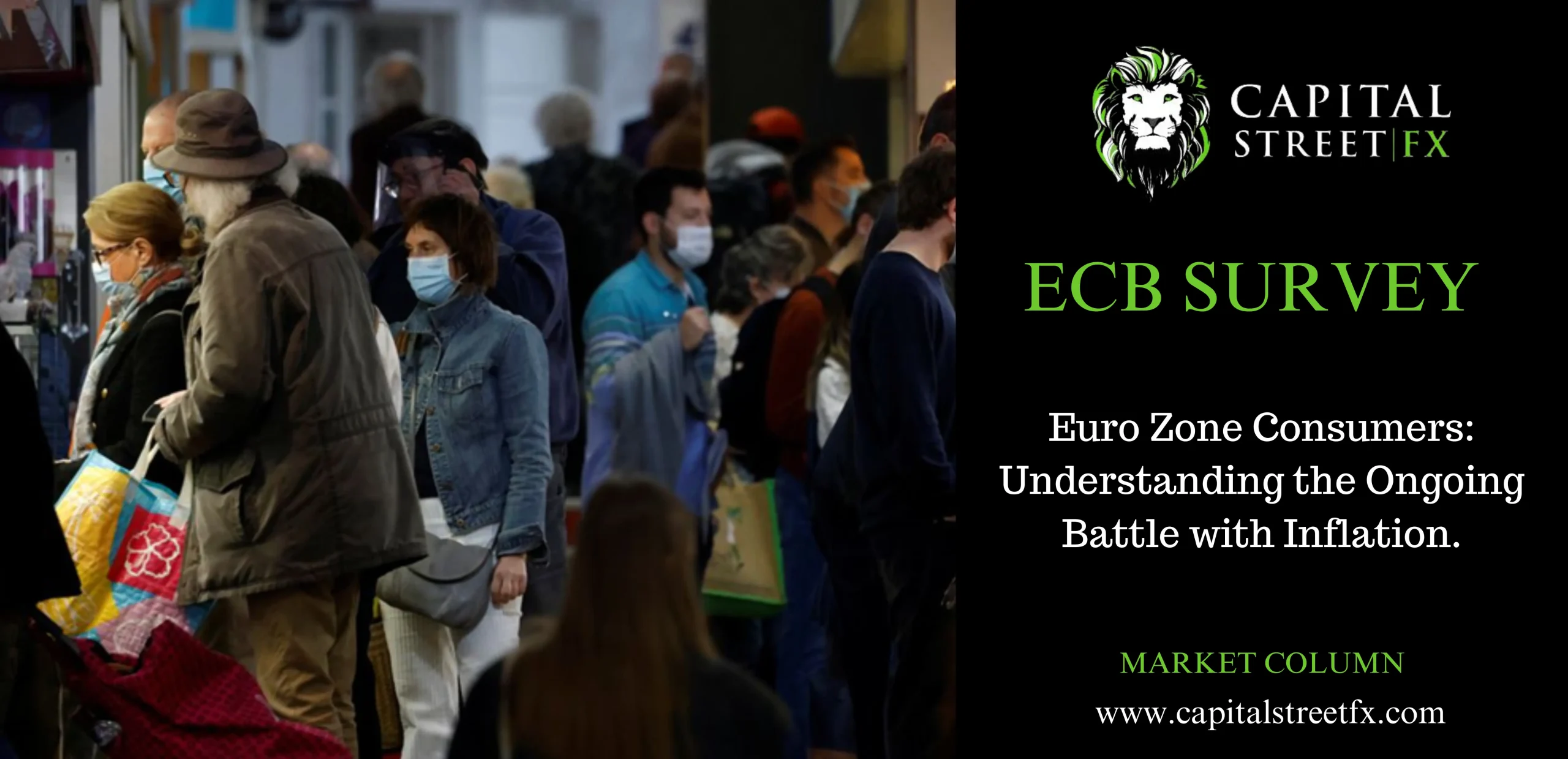Euro Zone Consumers: Understanding the Ongoing Battle with Inflation.
In today’s ever-changing economic landscape, consumers in the Eurozone are keeping a close eye on the region’s inflation rates. The European Central Bank (ECB) has set an inflation target of 2%, but recent data suggests that achieving and maintaining this target is proving to be a challenging task. In this article, we will explore the latest insights into Eurozone consumer expectations regarding inflation, its impact on various aspects of their lives, and the ECB’s efforts to manage and meet their targets.
The ECB’s Ongoing Struggle
The recent ECB survey has revealed that households in the Eurozone anticipate inflation to remain slightly above the 2% target for the next three years. This presents a significant challenge for the ECB as it tries to assure the public that its strategies for controlling price pressures are effective.
Consumer Predictions and Their Implications
Consumer predictions for inflation, while inherently uncertain, play a crucial role in shaping economic decisions. These expectations affect saving habits, consumption patterns, and wage demands. As a result, they are not to be taken lightly.
The Median Response
The median response to the ECB’s August Consumer Expectation Survey, which was released recently, indicates that consumers expect inflation to reach 2.5% in three years. This is a slight increase from the previous survey, where the projection stood at 2.4%. The fact that consumers expect inflation to rise above the target suggests a lack of confidence in the ECB’s ability to control it.
Short-Term Expectations
In terms of short-term expectations, consumers anticipate inflation in the coming year to rise slightly. In July, this figure was 3.4%, and it has now moved up to 3.5%. This increase reflects the uncertainty surrounding inflation trends.
ECB’s Stance
The European Central Bank (ECB) maintains that long-term inflation expectations are around 2%. However, they caution that certain projections have increased, and they are closely monitoring these developments. This situation adds to the complexity of managing inflation in the Eurozone.
ECB’s Measures to Combat Inflation
In response to the high inflation levels, the ECB has raised its interest rate on bank deposits to an impressive 4.0%. This move is aimed at curbing inflation, which escalated significantly a year ago due to rising energy costs and a post-pandemic demand surge, all while supply chains were still grappling with disruptions.
Projected Inflation Rates
At present, the ECB predicts price increases of 5.6% for the current year, 3.2% for 2024, and 2.1% for 2025. These projections reflect the central bank’s efforts to bring inflation under control in the coming years.
Consumer Sentiments
The recent survey also indicates that consumer expectations for the economy’s growth in the upcoming year have slightly decreased, from 0.7% in July to 0.8%. However, there is a more positive outlook regarding home price inflation, which is expected to reach 2.3% from 2.1%. Consumers also appear to be more optimistic about their income, with expectations of a 1.2% increase, up from 1.1%.
Conclusion
In conclusion, the Eurozone is grappling with the challenge of managing inflation, and consumer expectations are a critical element in this struggle. The ECB is employing various measures, including an increase in interest rates, to combat the rising inflation rates and regain public trust. As we move forward, it will be essential to monitor economic developments in the Eurozone closely.

